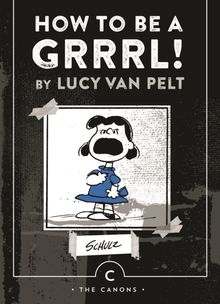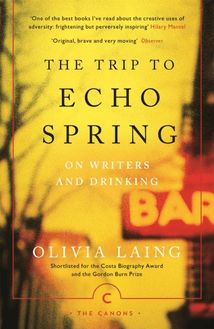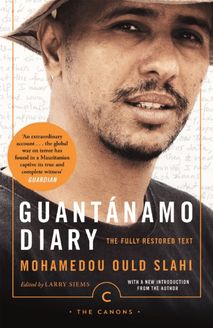Sunset Song , livre ebook
121
pages
English
Ebooks
2006
Vous pourrez modifier la taille du texte de cet ouvrage
Obtenez un accès à la bibliothèque pour le consulter en ligne En savoir plus
Découvre YouScribe en t'inscrivant gratuitement
Découvre YouScribe en t'inscrivant gratuitement
121
pages
English
Ebooks
2006
Vous pourrez modifier la taille du texte de cet ouvrage
Obtenez un accès à la bibliothèque pour le consulter en ligne En savoir plus
Publié par
Date de parution
30 mars 2006
Nombre de lectures
3
EAN13
9781847673596
Langue
English
Poids de l'ouvrage
1 Mo
Publié par
Date de parution
30 mars 2006
Nombre de lectures
3
EAN13
9781847673596
Langue
English
Poids de l'ouvrage
1 Mo
Lewis Grassic Gibbon (1901–35) is the pen-name of James LeslieMitchell. Born and brought up in the rich farming land of North EastScotland, he was a prolific writer of novels, short stories and essays andhad seventeen full-length books published before his untimely death atthe age of thirty-three. He is today recognised as one of the outstandingfigures in Scottish literature, most famous for A Scots Quair , the trilogy ofnovels which begins with Sunset Song .
The Canons edition published in 2021 by Canongate Books
This edition first published in Great Britain, the USA and Canada in 2020by Canongate Books Ltd, 14 High Street, Edinburgh EH1 1TE
Distributed in the USA by Publishers Group Westand in Canada by Publishers Group Canada
First published by Canongate Books in 1988
First published in Great Britain in 1932 by Jarrolds
canongate.co.uk
Introduction copyright © Nicola Sturgeon, 2020
Notes copyright © Thomas Crawford, 1988
British Library Cataloguing-in-Publication Data A catalogue record for this book is available on request from the British Library ISBN 978 1 83885 197 2 eISBN 978 1 84767 359 6
To Jean Baxter
Contents
Introduction
Note on the Text
Map of Kinraddie
PRELUDE
The Unfurrowed Field
THE SONG
I Ploughing
II Drilling
III Seed-Time
IV Harvest
EPILUDE
The Unfurrowed Field
Notes
Introduction
Sunset Song tells a beautiful, though often heartbreaking, story. Set in the North East of Scotland around the outbreak of the First World War, the novel pulls no punches in its harsh realism. Crushing poverty, the hard toil of earning a living from the land, the sternness of religion and the oppressive reality of life for women in particular – these are the themes that provide the context and background to the lives whose stories unfold in the book.
Kinraddie, the book’s fictional setting, also represents a world in transition. The rural practices and way of life that the story’s characters have always known are increasingly challenged by advancing technology and the impact of war. A central theme of the book is the passing of the ‘old Scotland’, a theme powerfully articulated towards the end as the minister unveils a memorial to the parish’s war dead:
It was the old Scotland that perished then, and we may believe thatnever again will the old speech and the old songs, the old curses and the old benedictions, rise but with alien effort to our lips.
But the novel is also, and without a hint of sentimentality or ‘kailyardism’, a story of human resilience and spirit. The characters draw strength and perspective from the land, even as it takes its toll on them. The ancient Standing Stones, at which the book’s main character, Chris Guthrie, seeks refuge at times of grief or personal turmoil, help to place the story and its setting in a historical context. And they remind us that the joys and heartbreaks of our own lives are but the blink of an eye in the grand sweep of history. It is a story of both transience and continuity.
Sunset Song is all of this, and much more. It is also, without a shadow of doubt, my favourite book of all time. That I would have said that without hesitation when I read it for the first time back in my teenage years is not surprising. But that I say it still, more than thirty years and hundreds of great books later, demands more examination. My conclusion is that the love I feel for Sunset Song is not just an appreciation of its considerable literary quality; it is as much, maybe more so, a reflection of the profound impact it had on me at a formative time of my life. In no small way, I owe my love of literature to Sunset Song .
I have been an avid reader of fiction for as long as I can remember, probably longer. My childhood memories are full of the stories of Beatrix Potter, Enid Blyton, Roald Dahl, C.S. Lewis, Lewis Carroll, Laura Ingalls Wilder and many more. For me, nothing – not TV or playing games with friends, nothing – could beat the joy and exhilaration of being transported by a story to a place of the imagination. I still love and marvel at the power of story – of plot and twist and anticipation – to lift us from our own reality.
But it was Sunset Song that awakened something deeper in me. It stirred an appreciation of more than just story, powerful though the one told by Lewis Grassic Gibbon undoubtedly is. Sunset Song is one of the first books that had me utterly captivated by the lyricism of language and the power of place. I discovered the novel’s ability to educate as well as entertain. I experienced the reflective and healing resonance of character – the ability of a made-up person on a page to help us better understand our own lives; to make us feel less alone. While I could fantasise about being George from the Famous Five in a life wildly different to my own, Chris Guthrie spoke to, and helped me make sense of, the girl I was.
Of course, in so many ways, the lives and experiences of the characters in Sunset Song are worlds away from my own. I grew up in a very different place and time. The harshness of rural life in the years leading up to and through the First World War was beyond my direct ken. That, though, is part of the appeal. The book quite literally introduced me to a part of my own country – Aberdeenshire – that until then had been as alien to me as a foreign land. It opened my ears to a language – an echo of the speak of the Mearns – that was of my country, but not really mine. It seeded in me a fascination and deep affection for the names, places and people of the North East of Scotland. To this day, a journey to Aberdeen past the road signs for the towns and villages of the Mearns always makes me think of Sunset Song – of Kinraddie, Blawearie, Peesie’s Knapp.
This novel taught me more about the Great War – its human impact and consequences – than I would have learned in a dozen textbooks. At some passages, I cried – moved more deeply by a book than I had ever been before. Indeed, over the past few years, my First Ministerial duties have taken me to First World War centenary commemorations in Arras, Amiens and the Somme. I have heard and been humbled by the real-life stories of those who fought, died and survived. And yet so often I’ve found myself thinking about the fictional Ewan Tavendale; about how the war brutalised him, turning his happy marriage to Chris into a nightmare of abuse and contempt. And about how, far away in a field in France, he had suddenly come to his senses, overcome by the futility of it all:
In a flash it had come on him, he had wakened up, he was daft and a fool to be there; and, like somebody minding things done in a coarse wild dream there had flashed on him memory of Chris at Blawearie and his last days there, mad and mad he had been . . .
I defy anyone to read these passages of Sunset Song without shedding tears.
But, for all that, it was Chris Guthrie that gave Sunset Song the place in my heart that it still occupies today. I am genuinely not sure if it is true or a stretch to say, as many do, that the Chris of Sunset Song – and the two subsequent novels that make up the Scots Quair trilogy – personifies Scotland.
But I do know that I – and I suspect many Scots – found in her something of myself and what it meant to be Scottish; and that she helped me make sense of the conflicts and choices my teenage self was grappling with. I understood through her the love/hate – but ultimately love – relationship with the land that many of us feel. Through Chris, I could give expression to the feelings that stirred in me as I looked across the field and out to the sea from my grandparents’ croft on the west coast of Scotland – dreaming of going to university in the ‘big city’, but knowing that part of my soul would always belong there. Chris also helped me understand the inferiority complex that working-class Scots can sometimes feel, worried that our way of speaking isn’t the ‘proper English’ we hear on the television, but also knowing that it is the best and purest way of expressing who we are.
You saw their faces in firelight, father’s and mother’s . . . you wanted the words they’d known and used, forgotten in the far-off youngness of their lives, Scots words to tell to your heart how they wrung it and held it, the toil of their days and unendingly their fight. And the next minute that passed from you, you were English, back to the English words so sharp and clean and true—for a while, for a while, till they slid so smooth from your throat you knew they could never say anything that was worth the saying at all.
Above all, it was the conflict that brews in Chris, between tradition and modernity, learning and the land, moving away or staying put, that resonated with me.
When I first read Sunset Song I was contemplating a future at Glasgow University, the first in my family to go on to higher education. I was excited by it, but also more than a little intimidated, wondering if I’d be able to cope away from my family, my community, my roots. In Sunset Song , Chris – a victim of circumstances beyond her control – is forced to turn her back on college and learning and instead stay on the farm at Blawearie. I went in the opposite direction, embracing university life with enthusiasm – but I took considerable inspiration from Chris Guthrie along the way.
Throughout Sunset Song , there is repeated reference to ‘two Chrisses’ as a way of describing the conflict that she carries within her. It is best articulated in this beautiful passage which I still think of regularly:
. . . two Chrisses there were that fought for her heart and tormented her. You hated the land and the coarse speak of the folk and learning was brave and fine one day; and the next you’d waken with the peewits crying across the hills, deep and deep, crying in the heart of you and the smell of the earth in your face, almost you’d cry for that, the beauty of it and the sweetness of the













